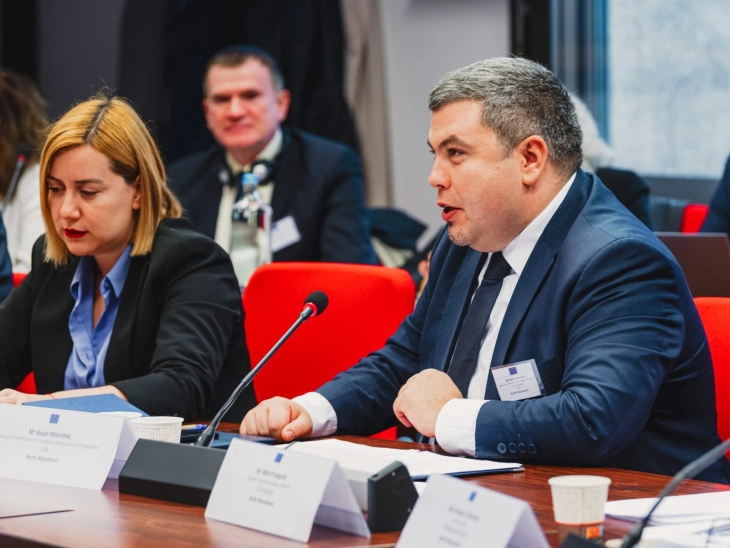Marichikj: Judiciary reforms key to speeding up European integration

Skopje, 27 September 2022 (MIA) – The meeting on Chapter 23 “Judiciary and Fundamental Rights” as part of the explanatory screening on the Cluster “Fundamentals” is held at the right time, because it will give us direction to properly plan future activities and reforms in the judiciary, Deputy PM for European Affairs Bojan Marichikj told Tuesday’s meeting in Brussels which concludes the series of meetings within the explanatory screening on Cluster 1 “Fundamentals”.
“The Strategy for Reform of the Judicial Sector for 2017-2022 is being implemented, and a new one is being drafted.”
Digitalization of judiciary is underway, and several digital services for citizens are available on the national e-service portal. Work is also underway on interoperability for electronic data exchange among 86 institutions, and to achieve greater judicial transparency, the Judicial Council adopted the 2021-2023 Action Plan for Open Judiciary, Marichikj posted on Facebook.
He pointed out that all activities undertaken in recent years are aimed at improving the electronic court portal, improving the quality and availability of data and information about the work of the Judicial Council and the courts, strengthening the supervisory role of the Judicial Council, as well as improving the electronic system for basic and continuous training of judges.
On Monday, an explanatory screening meeting was held on yet another area which is being introduced for the first time in the accession negotiations – “Functioning of democratic institutions”, as part of the cluster “Fundamentals”, the primary value the European Union is based on.
The screening process for aligning the national legislation with that of the EU kicked off on September 15 and is expected to be completed by November 2023, according to Marichikj.
Meetings on the areas and chapters from the Fundamentals cluster took place from September 15 through September 27. All meetings were held in Brussels except the meeting on Chapter 18, Statistics, that took place in Luxembourg.
A bilateral screening will be held on November 11 – December 9 when North Macedonia will present the level of alignment with the EU law, the institutional structure to implement the aligned laws, plans on how it should be further aligned, building of institutional and administrative capacities as well as the required human, financial and IT resources for implementing European standards.
After this process ends, the European Commission should prepare a report on the screening, including findings and evaluation by the Commission on the level of alignment, capacities and conclusions and recommendations, the Secretariat for European Affairs has said.







